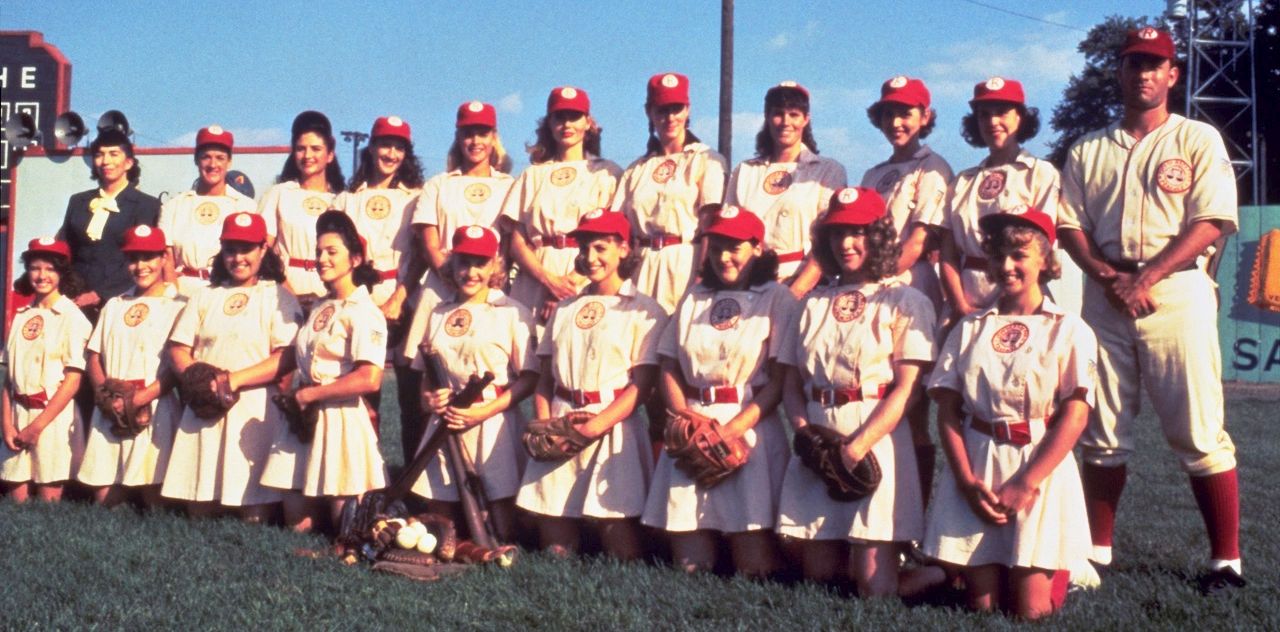 It has been a very quiet year for action heroine films. Here we sit, entering the sixth month of the year, and the only one of the top 100 movies in 2023 at the North American box-office I’ve reviewed here is Everything Everywhere All at Once – and that actually came out in April last year. [I’ll probably add Polite Society to the list shortly] There have been a couple of high-profile streaming titles, such as The Mother, and last week, I discovered the third series of La Reina Del Sur had hit Netflix. It made the top ten shows in the US, which is quite impressive. But it’ll take a few months for me to get through its 60 episodes.
It has been a very quiet year for action heroine films. Here we sit, entering the sixth month of the year, and the only one of the top 100 movies in 2023 at the North American box-office I’ve reviewed here is Everything Everywhere All at Once – and that actually came out in April last year. [I’ll probably add Polite Society to the list shortly] There have been a couple of high-profile streaming titles, such as The Mother, and last week, I discovered the third series of La Reina Del Sur had hit Netflix. It made the top ten shows in the US, which is quite impressive. But it’ll take a few months for me to get through its 60 episodes.
Since there’s nothing new to “feature”, I decided to dip back into the archives and revisit some old reviews, which are in need of updating for one reason or another. I’m starting with League of Their Own. This is partly because it deserves more than the three hundred words it got when originally reviewed 20+ years ago, and partly because of the Amazon reboot into a TV series which came out (as we’ll see, a very apt phrase!) last year. I think my original review (below) was a little harsh, though it may be that I’ve changed since. Baseball is now an intrinsic part of my everyday life, especially during the summer, and I can perhaps appreciate the film that much more.
Indeed, of all the films about baseball – and there have been some classic – I’d rate League behind only The Natural overall. The latter captures the mythic, almost epic quality of the sport, but League simply sparkles in terms of story, characters and dialogue. Virtually everyone involved gives at or near career-best performances, and considering that includes Tom Hanks and Geena Davis, this is a high bar indeed. Hell, even Madonna is good, though it feels more as if the character was written for her, rather than she’s playing a role.
At its heart is the relationship between sisters Dottie (Davis) and Kit (Lori Petty). Kit has been overshadowed by her sister for her whole life, but can at least hold her own in the baseball arena. When the chance comes to play professionally, it’s Dottie the scout wants, but Kit who needs the opportunity, and convinces the scout to take them both. Thereafter, it’s partly about Kit trying to come out from under the shadow of her sister, but also coach Jimmy Dugan (Hanks) rediscovering his love for the game, and all the women proving the game they provide can be every bit as entertaining for spectators as the male version, even if the quality of play is lower]
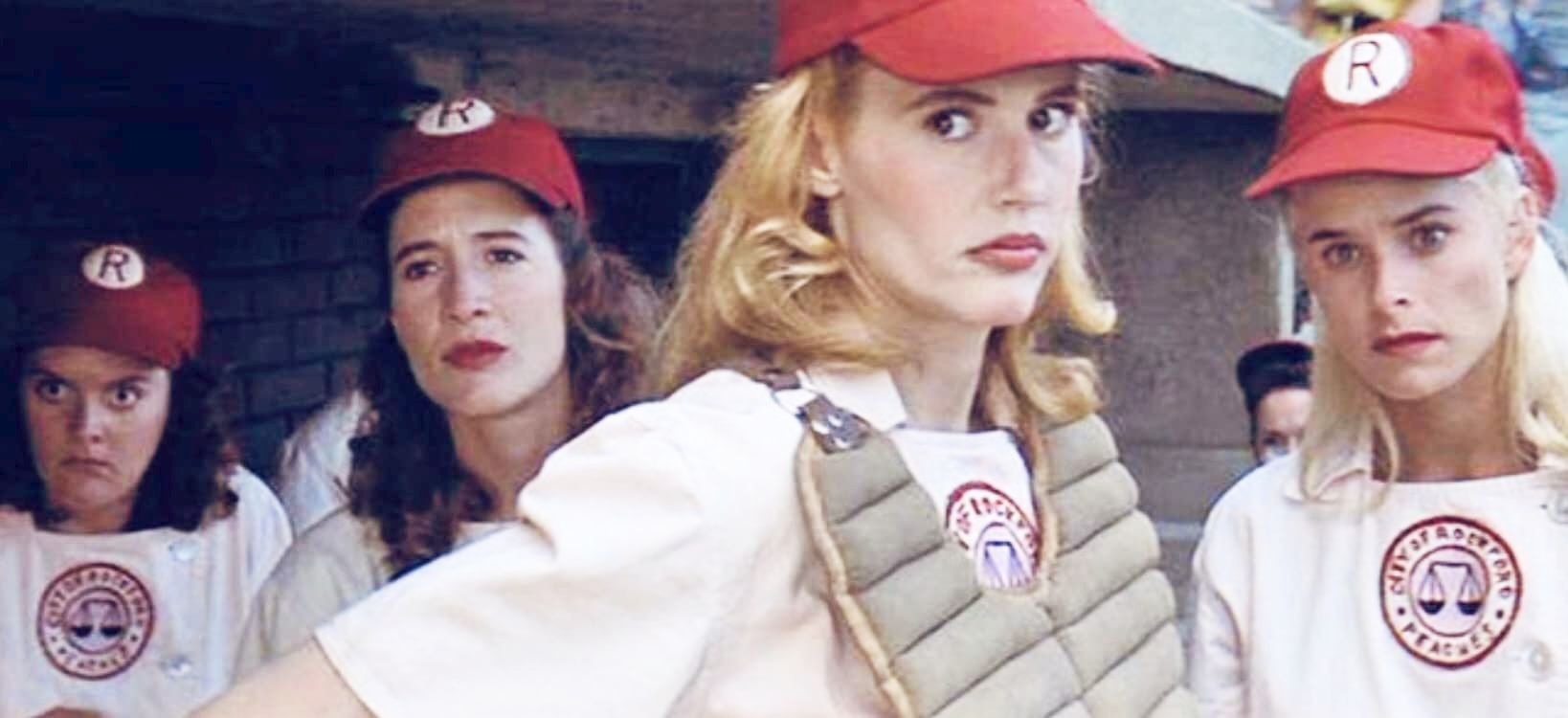 [Diversion. The distinction between quality and entertainment was made clear to me over the past few months as I’ve followed the battle for Wrexham to get promotion from the fifth to the fourth tier of English football. The talent on view is not of Premier League quality, clearly. But the decisive contest against rivals Notts County – won 3-2 by Wrexham after their keeper saved a penalty in injury time – was the most dramatic and enthralling game of football I’ve ever watched. So, the appeal of the All-American Girls Professional Baseball League doesn’t need explaining, even if they’re not the major-leagues]
[Diversion. The distinction between quality and entertainment was made clear to me over the past few months as I’ve followed the battle for Wrexham to get promotion from the fifth to the fourth tier of English football. The talent on view is not of Premier League quality, clearly. But the decisive contest against rivals Notts County – won 3-2 by Wrexham after their keeper saved a penalty in injury time – was the most dramatic and enthralling game of football I’ve ever watched. So, the appeal of the All-American Girls Professional Baseball League doesn’t need explaining, even if they’re not the major-leagues]
Writers Lowell Ganz and Babaloo Mandel do a remarkably good job of keeping all the threads of the story moving forward over the course of the season. Events culminate in the final game, where the two sisters face off, on different teams, for the championship. Dottie knows its her last game, since she’s going to quit and start a family. Kit, however, needs the win, for her self-esteem. It is, of course, Sports Cliche 1.0.1, with the title decided on the final play, Kit barreling into Dottie at home-plate. Yet it still works. Even the wraparound segments, which I disliked at the time, now seem to provide a suitable send-off for the characters we have grown to love over the preceding two hours. Hence, its rating is upgraded to a very solid ★★★★.
Then there’s Amazon’s League of Their Own. It’s basically unwatchable. I tried, trust me. But it takes a story that operated at the intersection of sports and humanity, and turns it into one firmly located on the cross-streets of sexuality and race. And that’s fine. It’s certainly a version which could be told about the AAGPBL. But it isn’t what I wanted to see, and it certainly shouldn’t have been called A League of Their Own, because that creates a set of expectations which the film is unable to fulfill, despite forcing in famous lines like “There’s no crying in baseball!” Call it Lesbians in the War Who Occasionally Play Baseball: that’d be a more accurate reflection of the show’s interests.
Even as that, it’s not very good. The CGI used during the baseball games is flat-out terrible: nobody involved here looks even slightly competent (an area where it differs radically from, say, GLOW). It’s also a thoroughly unconvincing rendition of the period. The dialogue, attitudes and even the incidental music, all appear to come from significantly later times, to the point why you wonder why they bothered setting it in in the forties at all. Turning a frothy and subtly empowering comedy-drama into a social commentary sledgehammer, where baseball is an escape from straight society, was never a good decision. At least the largely (and justifiably) forgotten 1993 series, for all its flaws, operated in the same thematic ballpark. Pun not intended.
None of which takes away in the slightest from the joys to be had in the original movie. We watched it last night, and never mind baseball, it has to be one of the best sports movies, regardless of gender, of all time. That’s probably because it’s a rare entity which works both in terms of its sport and without it. You could remove every scene of them playing baseball and you’d still have a thoroughly entertaining, if somewhat confusing, film. About an all-women bus tour of the Midwest, I guess. But the AAGPBL was an entity that certainly needed to be better known too, and A League of Their Own is the telling of their story which it deserves.
★★★½
“A chick flick with balls…and strikes.”

 Deserving credit for being about the only female sports film of note, this is actually pretty good, despite a pointless and schmaltzy wraparound, which gives us nothing but some wrinkly baseball, one of Madonna’s least memorable songs and Geena Davis as a thoroughly unconvincing pensioner. Which is a shame; if the bread in the sandwich is stale, the meat is tasty and filling.
Deserving credit for being about the only female sports film of note, this is actually pretty good, despite a pointless and schmaltzy wraparound, which gives us nothing but some wrinkly baseball, one of Madonna’s least memorable songs and Geena Davis as a thoroughly unconvincing pensioner. Which is a shame; if the bread in the sandwich is stale, the meat is tasty and filling.
From 1943 to 1954, women played professional baseball, a fact largely forgotten until this film. Davis plays the star catcher, taken from the countryside to play ball – giving a new meaning to “farm team”, hohoho – along with her sister (Petty). The movie covers the first season, under a recovering alcoholic coach (Hanks), leading to a face-off between siblings in Game 7 of the championship.
Davis is excellent and entirely convincing (she’d go on to make final trials for the US 2000 Olympic archery team): the interplay between her and Hanks is great, and most of her team-mates are also true personalities. However, Madonna is superfluous, given the similar presence of Rosie O’Donnell [I’m struggling to avoid obvious jokes here]. Jon Lovitz steals the first quarter as an acidic scout, and it’s a shame when he leaves.
If the characters are great, there’s a lack of narrative drive; how can you get excited over playoffs, when it looks like every team qualifies? The friction between Davis and Petty vanishes for much of the movie, in favour of a series of entertaining but – being honest – unimportant diversions. When we reach the finale though, it’s great; ever bit as exciting as any World Series Game 7. And coming from an Arizona Diamondbacks fan, that’s praise indeed.
Dir: Penny Marshall
Star: Geena Davis, Lori Petty, Tom Hanks, Rosie O’Donnell
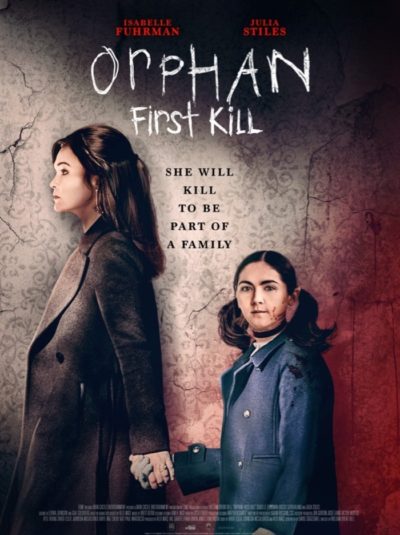 I’ve not seen the original Orphan. I suspect this does not matter very much, since what we have here is a prequel. I will admit to having been lured in by the barking mad central idea. It does justice to the lunacy, though can’t sustain itself entirely, and at least somewhat collapses under its own weight. We begin in Estonia, where Leena (Fuhrman) is a very, very angry 31-year-old. Not without justification, being trapped in a 9-year-old’s body due to a hormonal condition. Previous violence has got her committed to a secure facility, but Leena breaks out and decides to adopt the identity of Esther Albright, an American child who went missing years previously.
I’ve not seen the original Orphan. I suspect this does not matter very much, since what we have here is a prequel. I will admit to having been lured in by the barking mad central idea. It does justice to the lunacy, though can’t sustain itself entirely, and at least somewhat collapses under its own weight. We begin in Estonia, where Leena (Fuhrman) is a very, very angry 31-year-old. Not without justification, being trapped in a 9-year-old’s body due to a hormonal condition. Previous violence has got her committed to a secure facility, but Leena breaks out and decides to adopt the identity of Esther Albright, an American child who went missing years previously. 




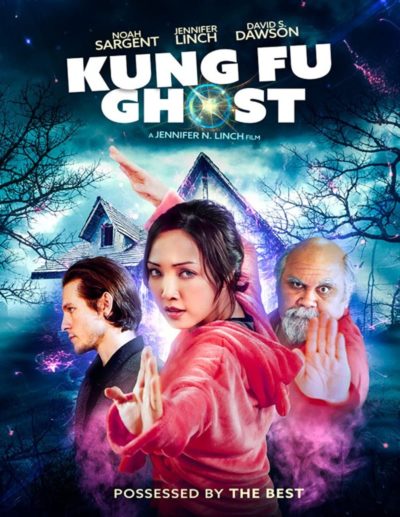 This is another example of someone simply trying to do too much on their movie. For Linch not only starred in, produced and directed this, she also edited it, did the sound design and was the colourist. It’s not hard to predict her talents are not equally divided. It’s a shame, since I really wanted to enjoy this: much like its heroine, there’s a plucky, can-do attitude present, which can only be admired. Unfortunately, anyone above the age of eight is going to be quite hard-pushed to overlook the flaws. While the action is not especially one of those, the volume there is underwhelming, and the romantic, comedic and dramatic elements are hugely variable, to put it politely.
This is another example of someone simply trying to do too much on their movie. For Linch not only starred in, produced and directed this, she also edited it, did the sound design and was the colourist. It’s not hard to predict her talents are not equally divided. It’s a shame, since I really wanted to enjoy this: much like its heroine, there’s a plucky, can-do attitude present, which can only be admired. Unfortunately, anyone above the age of eight is going to be quite hard-pushed to overlook the flaws. While the action is not especially one of those, the volume there is underwhelming, and the romantic, comedic and dramatic elements are hugely variable, to put it politely. It has been a very quiet year for action heroine films. Here we sit, entering the sixth month of the year, and the only one of the top 100 movies in 2023 at the North American box-office I’ve reviewed here is
It has been a very quiet year for action heroine films. Here we sit, entering the sixth month of the year, and the only one of the top 100 movies in 2023 at the North American box-office I’ve reviewed here is  [Diversion. The distinction between quality and entertainment was made clear to me over the past few months as I’ve followed the battle for Wrexham to get promotion from the fifth to the fourth tier of English football. The talent on view is not of Premier League quality, clearly. But the decisive contest against rivals Notts County – won 3-2 by Wrexham after their keeper saved a penalty in injury time – was the most dramatic and enthralling game of football I’ve ever watched. So, the appeal of the All-American Girls Professional Baseball League doesn’t need explaining, even if they’re not the major-leagues]
[Diversion. The distinction between quality and entertainment was made clear to me over the past few months as I’ve followed the battle for Wrexham to get promotion from the fifth to the fourth tier of English football. The talent on view is not of Premier League quality, clearly. But the decisive contest against rivals Notts County – won 3-2 by Wrexham after their keeper saved a penalty in injury time – was the most dramatic and enthralling game of football I’ve ever watched. So, the appeal of the All-American Girls Professional Baseball League doesn’t need explaining, even if they’re not the major-leagues]
 Deserving credit for being about the only female sports film of note, this is actually pretty good, despite a pointless and schmaltzy wraparound, which gives us nothing but some wrinkly baseball, one of Madonna’s least memorable songs and Geena Davis as a thoroughly unconvincing pensioner. Which is a shame; if the bread in the sandwich is stale, the meat is tasty and filling.
Deserving credit for being about the only female sports film of note, this is actually pretty good, despite a pointless and schmaltzy wraparound, which gives us nothing but some wrinkly baseball, one of Madonna’s least memorable songs and Geena Davis as a thoroughly unconvincing pensioner. Which is a shame; if the bread in the sandwich is stale, the meat is tasty and filling.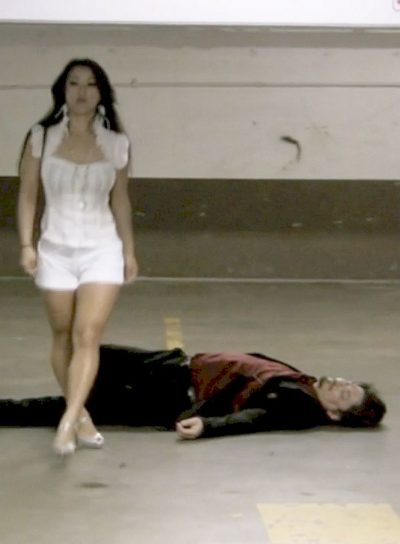 Tubi TV has become a goldmine of obscure, weird and,
Tubi TV has become a goldmine of obscure, weird and,  I spent much of the first thirty minutes here going “That can’t be Juliette Binoche.” Yet, it is, the French actress looking thoroughly unglamorous and very convincing in her portrayal of white trash trucker Sally. Her brother Dennis (Frank Grillo, whose role isn’t as big as the poster would have you believe) is in prison, and under pressure from even sketchier parties, so Sally has been delivering packages for said parties as she criss-crosses the country. He’s about to get out, so this will be her last run. She’s still shocked to discover the item in this case is a
I spent much of the first thirty minutes here going “That can’t be Juliette Binoche.” Yet, it is, the French actress looking thoroughly unglamorous and very convincing in her portrayal of white trash trucker Sally. Her brother Dennis (Frank Grillo, whose role isn’t as big as the poster would have you believe) is in prison, and under pressure from even sketchier parties, so Sally has been delivering packages for said parties as she criss-crosses the country. He’s about to get out, so this will be her last run. She’s still shocked to discover the item in this case is a 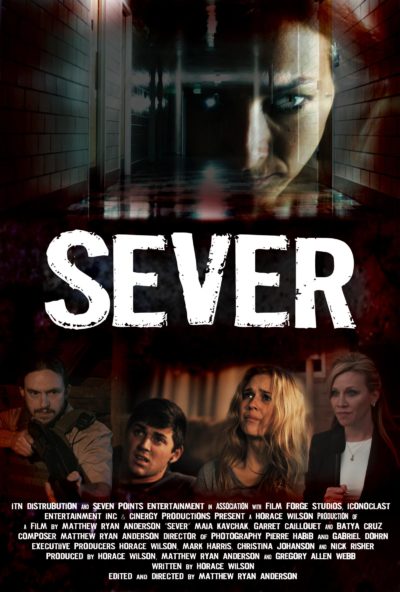 The French film
The French film 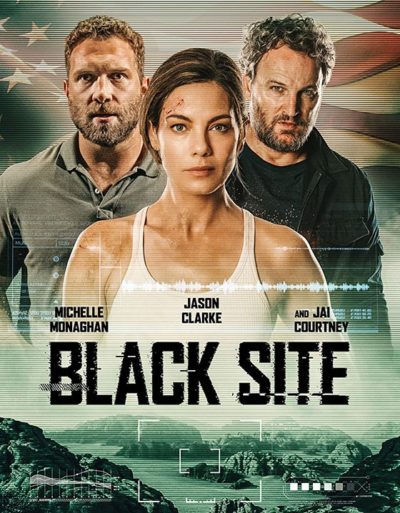 This has a fair amount in common with the disaster which was
This has a fair amount in common with the disaster which was 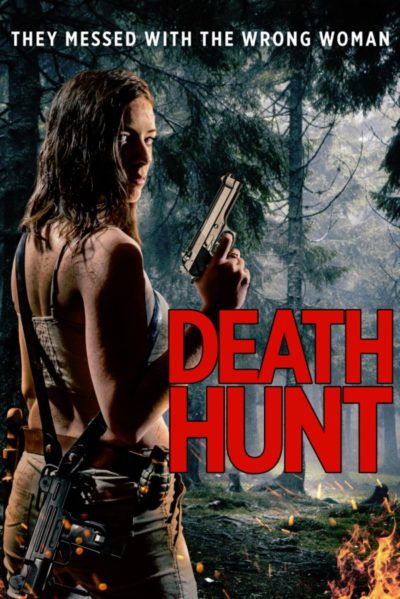 Despite a striking poster (well played, PR team), for the first hour, you’ll probably be wondering why this is included here. Corporate lawyer Ray Harper (Tucci) is on the road, trying to convince reluctant local farmers to sell their land for development. He’s also taking advantage of the away time to hook up with his bit on the side, Brooke Hamilton (Malcolm). Both these enterprises are rudely interrupted when the couple are pulled over by corrupt cop, Williams (Johnston), and abducted at gunpoint. They are the next “guests” on an island run by TJ (McDonald), where he and his pals can get together to hunt… The Most Dangerous Game. Except, they can’t find any of that, so have to make do with a middle-aged executive and his other woman.
Despite a striking poster (well played, PR team), for the first hour, you’ll probably be wondering why this is included here. Corporate lawyer Ray Harper (Tucci) is on the road, trying to convince reluctant local farmers to sell their land for development. He’s also taking advantage of the away time to hook up with his bit on the side, Brooke Hamilton (Malcolm). Both these enterprises are rudely interrupted when the couple are pulled over by corrupt cop, Williams (Johnston), and abducted at gunpoint. They are the next “guests” on an island run by TJ (McDonald), where he and his pals can get together to hunt… The Most Dangerous Game. Except, they can’t find any of that, so have to make do with a middle-aged executive and his other woman.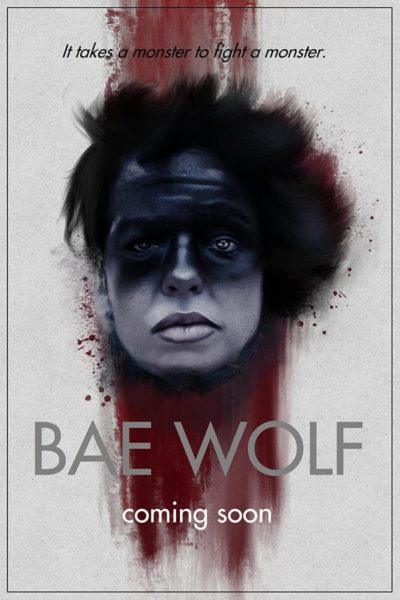 There is certainly room for reworking of the tale of Beowulf and Grendel, and making the heroines of this version female is what got me interested in it. However, the warning signs were out very quickly. Opening titles which said “Denmark… 500 AD… (-ish)” are a good sign of what to expect, for it’s clear that the makers were not happy to leave their changes at that. Indeed, they consciously embrace anachronism, especially in the dialogue, which is thoroughly modern, and could not be further from the epic poetry of the original if they tried. And I suspect they
There is certainly room for reworking of the tale of Beowulf and Grendel, and making the heroines of this version female is what got me interested in it. However, the warning signs were out very quickly. Opening titles which said “Denmark… 500 AD… (-ish)” are a good sign of what to expect, for it’s clear that the makers were not happy to leave their changes at that. Indeed, they consciously embrace anachronism, especially in the dialogue, which is thoroughly modern, and could not be further from the epic poetry of the original if they tried. And I suspect they 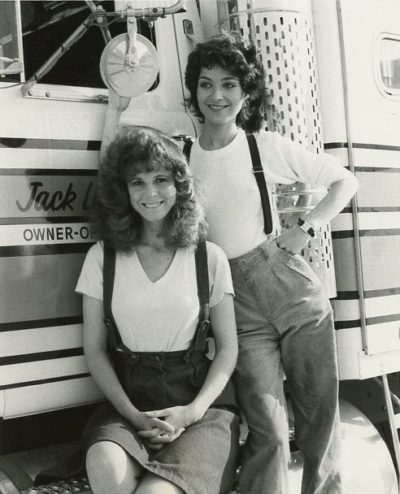 After her truck-driving husband is injured in an attempted hijack, Sweetiepie (Darby) finds herself in a bind. They’re way behind on payments for the truck, to the point that it’s about to be repossessed by C.W. Douglas (Stanton) of Vehicle Retrievals Incorporated. In desperation, she hires experienced driver Flatbed Annie (Potts) to partner with her, working the necessary delivery routes to pay off their debt. However, Douglas is not the only threat the pair face on the highway. The failed hijack was intended to recover a package which has surreptitiously been placed in the truck during a run to Mexico, and its owners remain very keen to recover their merchandise from the new operators,
After her truck-driving husband is injured in an attempted hijack, Sweetiepie (Darby) finds herself in a bind. They’re way behind on payments for the truck, to the point that it’s about to be repossessed by C.W. Douglas (Stanton) of Vehicle Retrievals Incorporated. In desperation, she hires experienced driver Flatbed Annie (Potts) to partner with her, working the necessary delivery routes to pay off their debt. However, Douglas is not the only threat the pair face on the highway. The failed hijack was intended to recover a package which has surreptitiously been placed in the truck during a run to Mexico, and its owners remain very keen to recover their merchandise from the new operators,